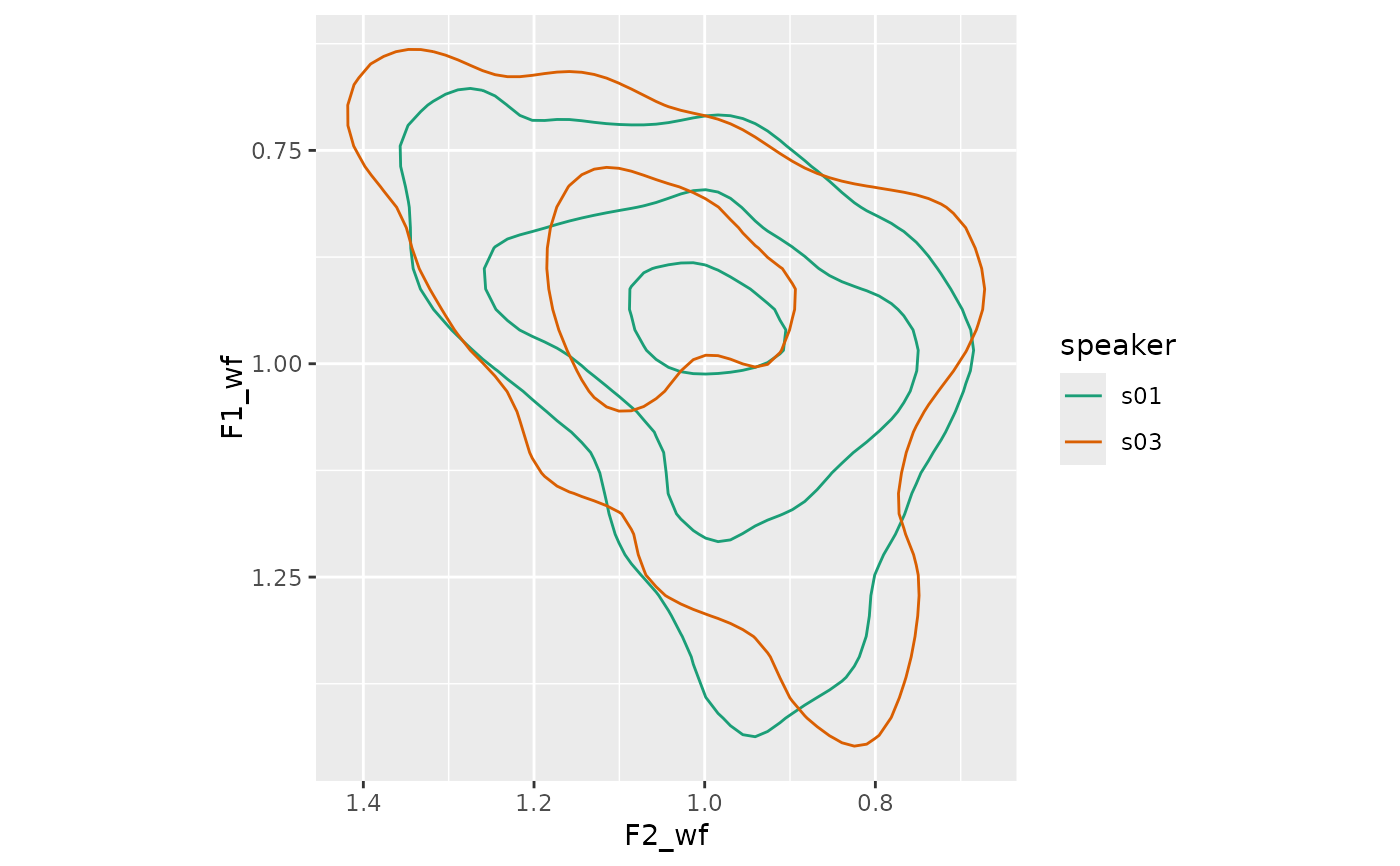Watt & Fabricius Normalize
Usage
norm_wattfab(
.data,
...,
.by = NULL,
.by_formant = TRUE,
.drop_orig = FALSE,
.keep_params = FALSE,
.names = "{.formant}_wf",
.silent = FALSE
)Arguments
- .data
A data frame containing vowel formant data
- ...
<tidy-select>One or more unquoted expressions separated by commas. These should target the vowel formant data columns.- .by
<tidy-select>A selection of columns to group by. Typically a column of speaker IDs.- .by_formant
Ignored by this procedure
- .drop_orig
Whether or not to drop the original formant data columns.
- .keep_params
Whether or not to keep the Location (
*_.L) and Scale (*_.S) normalization parameters- .names
A
glue::glue()expression for naming the normalized data columns. The"{.formant}"portion corresponds to the name of the original formant columns.- .silent
Whether or not the informational message should be printed.
Details
This is a modified version of the Watt & Fabricius Method. The original method identified point vowels over which F1 and F2 centroids were calculated. The procedure here just identifies centroids by taking the mean of all formant values.
$$ \hat{F}_{ij} = \frac{F_{ij}}{S_i} $$
$$ S_i = \frac{1}{N}\sum_{j=1}^N F_{ij} $$
Where
\(\hat{F}\) is the normalized formant
\(i\) is the formant number
\(j\) is the token number
References
Watt, D., & Fabricius, A. (2002). Evaluation of a technique for improving the mapping of multiple speakers’ vowel spaces in the F1 ~ F2 plane. Leeds Working Papers in Linguistics and Phonetics, 9, 159–173.
Examples
library(tidynorm)
ggplot2_inst <- require(ggplot2)
speaker_data_wattfab <- speaker_data |>
norm_wattfab(
F1:F3,
.by = speaker,
.names = "{.formant}_wf"
)
#> Normalization info
#> • normalized with `tidynorm::norm_wattfab()`
#> • normalized `F1`, `F2`, and `F3`
#> • normalized values in `F1_wf`, `F2_wf`, and `F3_wf`
#> • grouped by `speaker`
#> • within formant: TRUE
#> • (.formant - 0)/(mean(.formant, na.rm = T))
#>
if (ggplot2_inst) {
ggplot(
speaker_data_wattfab,
aes(
F2_wf,
F1_wf,
color = speaker
)
) +
stat_density_2d(
bins = 4
) +
scale_color_brewer(
palette = "Dark2"
) +
scale_x_reverse() +
scale_y_reverse() +
coord_fixed()
}

